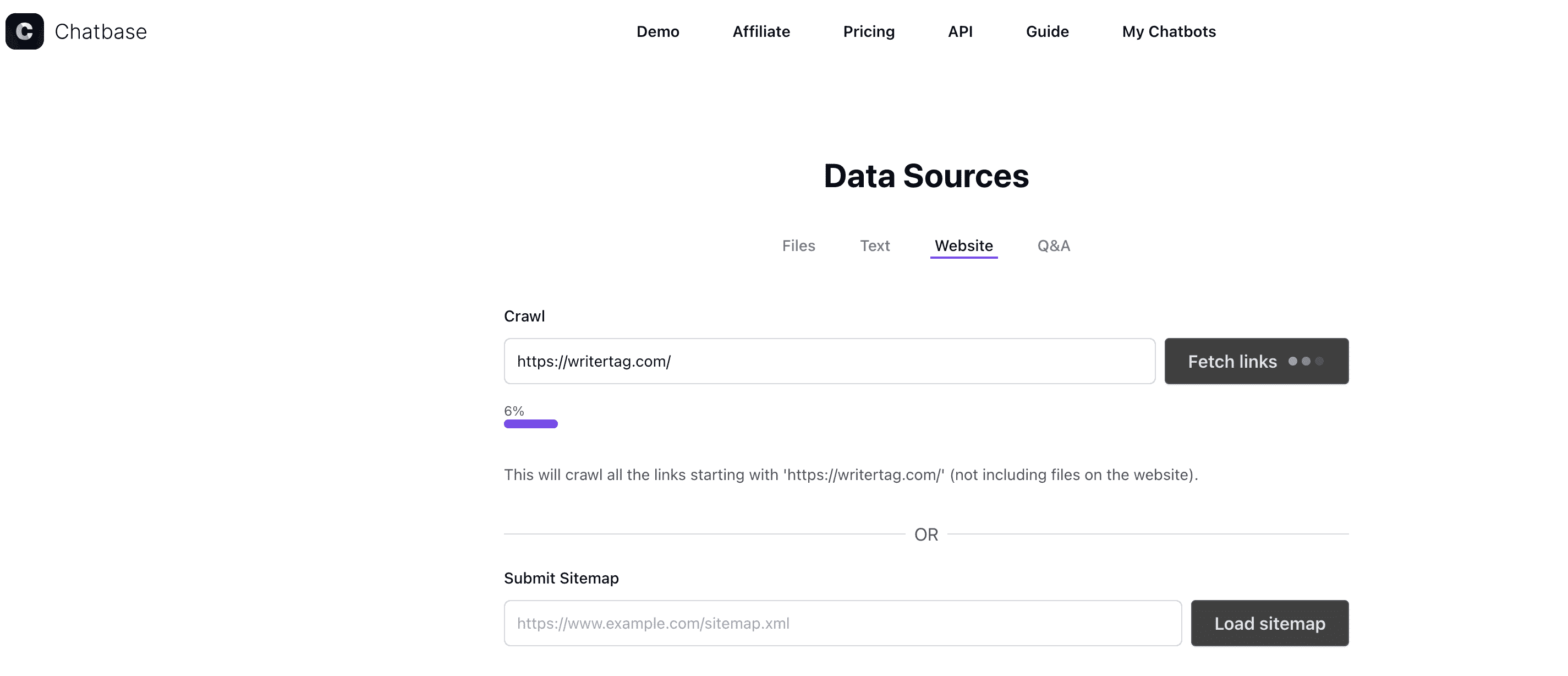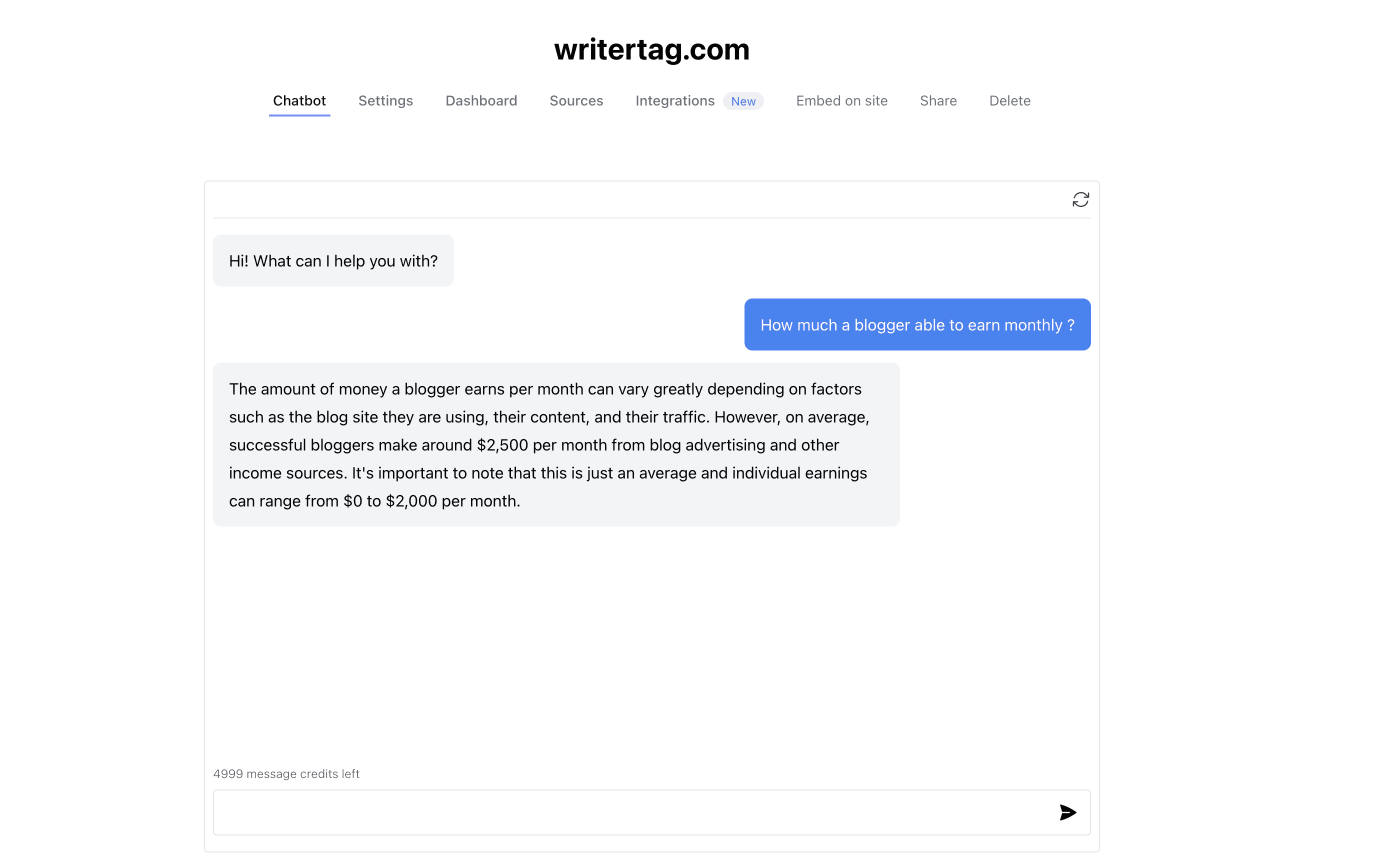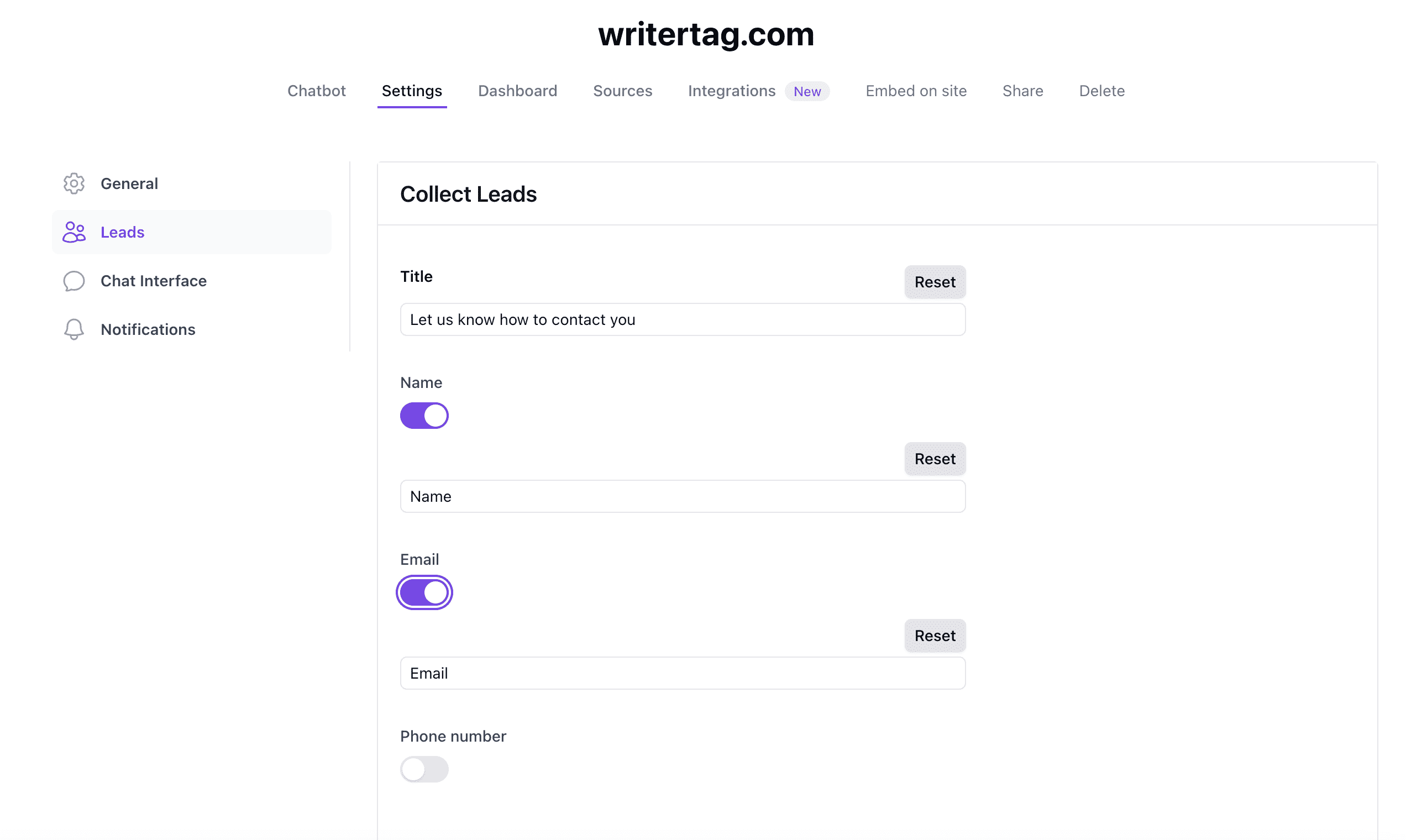AI chatbots for websites are virtual assistants that use artificial intelligence technology to communicate with visitors on a website. These chatbots are designed to provide automated responses, answer questions, and assist with customer inquiries in a conversational manner.
How AI chatbots for websites work
AI chatbots for websites work by using natural language processing (NLP) algorithms to understand and interpret the user’s queries or messages. They then generate appropriate responses based on pre-defined rules or machine learning models. Some advanced chatbots even have the capability to learn from past interactions and improve their responses over time.
Benefits of using AI chatbots for websites
- Improved customer experience: AI chatbots can provide instant and personalized assistance to website visitors, enhancing their overall experience.
- 24/7 availability: Unlike human customer support agents, AI chatbots can offer round-the-clock support, ensuring that visitors always have someone to interact with.
- Cost-effective: Implementing AI chatbots can reduce the need for human resources, resulting in cost savings for businesses.
- Increased efficiency: Chatbots can handle multiple conversations simultaneously, allowing businesses to handle a higher volume of customer inquiries without sacrificing quality.
Overall, AI chatbots for websites offer a convenient and efficient way to engage with website visitors, improve customer satisfaction, and streamline customer support processes.
AI chatbots for websites are virtual assistants that use artificial intelligence technology to communicate with visitors on a website. They provide automated responses, answer questions, and assist with customer inquiries in a conversational manner. These chatbots work by using natural language processing algorithms to understand user queries and generate appropriate responses. They offer benefits such as improved customer experience, 24/7 availability, cost-effectiveness, and increased efficiency.
Key takeaways:
- AI chatbots for websites enhance customer experience by providing personalized assistance.
- They offer round-the-clock availability, ensuring visitors always have someone to interact with.
- Implementing AI chatbots can result in cost savings for businesses by reducing the need for human resources.
- Chatbots can handle multiple conversations simultaneously, increasing efficiency.
- Examples like Amazon Lex and LivePerson demonstrate the potential of AI chatbots for websites.
- The future of AI chatbots involves improved natural language processing, machine learning, omnichannel integration, and personalization.
Examples of AI Chatbots for Websites

Amazon Lex for Websites
Amazon Lex is an AI chatbot platform that enables businesses to integrate conversational interfaces into their websites. It uses automatic speech recognition (ASR) and natural language understanding (NLU) technology to understand and respond to customer queries in a conversational manner.
LivePerson
LivePerson offers an AI-powered chatbot for websites that uses advanced natural language processing (NLP) to deliver personalized customer experiences. It can handle complex queries, provide product recommendations, and even assist with transactions.
Chatfuel
Chatfuel is a popular chatbot platform that allows businesses to create AI chatbots for websites without any coding knowledge. It offers an intuitive drag-and-drop interface and supports integrations with various messaging platforms.
Tidio
Tidio is a user-friendly chatbot platform that provides AI-powered chatbots for websites. It offers features like automated responses, customizable designs, and real-time visitor monitoring to enhance customer engagement.
Drift
Drift is a conversational marketing platform that offers an AI chatbot for websites. It uses AI and machine learning to provide personalized conversations and collect customer data for better lead qualification.
These examples demonstrate the potential of AI chatbots in enhancing customer engagement and providing personalized experiences on websites. By leveraging these technologies, businesses can improve customer satisfaction, streamline support processes, and ultimately drive more conversions.
How AI Chatbots for Websites Can Benefit Businesses

Generate leads and sales
AI chatbots for websites can act as virtual sales representatives, engaging with potential customers and guiding them through the buying process. They can provide product recommendations, answer questions, and offer discounts or promotions to encourage conversions.
Collect data about website visitors
AI chatbots can gather valuable information about website visitors by asking questions and storing their responses. This data can be used to personalize marketing campaigns, target specific customer segments, and improve the overall user experience.
The Future of AI Chatbots for Websites
The future of AI chatbots for websites is promising. Advancements in natural language processing and machine learning algorithms will enable chatbots to understand and respond to user queries more accurately. They will become even more intelligent and capable of handling complex interactions, further enhancing customer satisfaction.
Answer FAQs
AI chatbots can handle frequently asked questions, saving time for both customers and businesses. They can provide instant responses to common inquiries, reducing the need for manual customer support and improving efficiency.
Help users with tasks
AI chatbots can assist users with various tasks, such as scheduling appointments, making reservations, or providing technical support. By automating these processes, businesses can improve customer service and streamline operations.
In conclusion, AI chatbots for websites offer numerous benefits to businesses. From generating leads and sales to collecting valuable data and enhancing customer support, they are becoming an essential tool in the digital landscape.
The Future of AI Chatbots for Websites
With advancements in technology, the future of AI chatbots for websites looks promising. These chatbots are evolving to provide a more personalized and efficient customer experience.

Here are some key developments to look out for:
How AI chatbots for websites are evolving
- Natural Language Processing: AI chatbots are becoming more adept at understanding and responding to natural language. This allows for more conversational interactions between the chatbot and the user.
- Machine Learning: AI chatbots are using machine learning algorithms to continuously improve their responses based on user interactions. This enables them to provide more accurate and relevant information.
- Omnichannel Integration: Chatbots are being integrated across different channels, such as websites, mobile apps, and social media platforms. This ensures a seamless customer experience and allows businesses to engage with their customers wherever they are.
- Personalization: AI chatbots are being enhanced to provide personalized recommendations and offers based on user preferences and behavior. This helps businesses deliver a more tailored and targeted customer experience.
In summary, the future of AI chatbots for websites is focused on providing a more human-like, personalized, and efficient customer experience. These advancements will enable businesses to engage with their customers in a more meaningful way, ultimately driving customer satisfaction and loyalty.
Conclusion
In conclusion, branding plays a crucial role in setting your business apart from the competition and creating a strong and memorable identity for your customers. By investing in branding efforts, you can effectively communicate your unique values and establish a recognizable presence in the market. This can lead to increased customer trust and loyalty, ultimately driving business growth and success.
Future trends and advancements in AI chatbot technology
As technology continues to evolve, we can expect to see advancements in AI chatbot technology. Some future trends may include:
- Improved natural language processing (NLP) capabilities, allowing chatbots to better understand and respond to customer inquiries.
- Integration with advanced analytics and machine learning algorithms, enabling chatbots to provide personalized recommendations and solutions.
- Enhanced voice recognition capabilities, making it easier for users to interact with chatbots through voice commands.
- Integration with other emerging technologies such as virtual reality (VR) and augmented reality (AR), creating more immersive and interactive chatbot experiences.
Overall, AI chatbots have the potential to revolutionize customer interactions and improve business efficiency. By staying updated on the latest trends and advancements in chatbot technology, businesses can continue to leverage this powerful tool to enhance their brand communication and customer experiences. [1][2]




